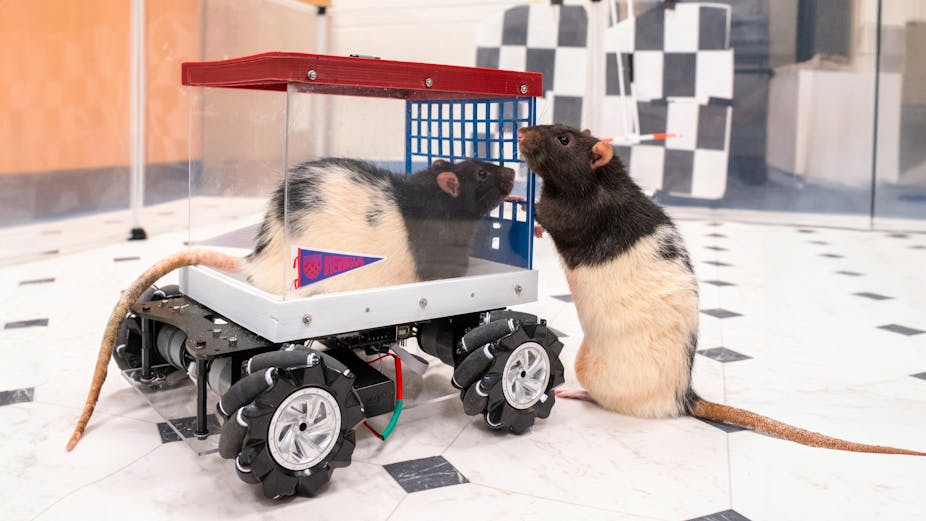Elon Musk and Vivek Ramaswamy are getting their waste-trimming clippers ready.
President-elect Donald Trump this week named the billionaire Tesla owner and the former Republican presidential candidate as the co-leaders of a new Department of Government Efficiency (DOGE).
The two business execs are tasked with shaving trillions of dollars off the federal government's annual $6.75 trillion spend, by cutting waste, red tape, and downsizing federal agencies.
The examples of needless government largesse are all too common — from the Pentagon's big overspends on soap dispensers to questionable drag performances in South American cities.
Trump likens his cost-cutting effort to the Manhattan Project, America's atomic bomb program in the 1940s, and says it will help 'dismantle government bureaucracy.'
Musk estimates he can save taxpayers $1.9 trillion. He promises 'maximum transparency' from a team that will operate outside the regular confines of government.
'We will also have a leaderboard for most insanely dumb spending of your tax dollars,' Musk posted on X.
President-elect Trump has hired Elon Musk to cut red tab and trim government flab
The federal government spent $3 million to find out more about hamsters fighting when they're pumped full of steroids
'This will be both extremely tragic and extremely entertaining.'
Still, critics say DOGE hands more power to the world's richest man, who donated millions to get Trump elected and whose companies could benefit from the new government portfolio.
As the axe comes down, DailyMail.com takes a look at some of the wildest examples of government overspend.
RODENT ROID RAGE
Many of the quirkiest cases of government spending are undertaken by the National Institutes of Health (NIH), which has paid to pump hamsters full of steroids and got them to fight in the name of science.
That $3 million study by researchers at Northeastern University was aimed at assessing 'whether current drugs for aggressive youth suppress steroid-induced aggression,' says a government report.
But rodent 'roid rage' research was just the tip of the iceberg. The NIH has also spent $2.3 million injecting six-month-old beagle puppies with cocaine, and $1.1 million on training mice to binge alcohol.
NAVY GOURMETS
White with foam: Paul singled out Pentagon and US Navy purchases of espresso machines
According to the adage, an army marches on its stomach.
The Pentagon may have taken this too literally, forking out $192,952 on top-of-the-line Starbucks espresso machines' for the US Navy between 2017 and 2021.
It's not clear exactly which admiral signed off on luxury coffee machines. But an old-fashioned 'cup of Joe' clearly was not good enough for the gourmets who protect America on the high seas.
MILITARY MARKUPS
What's the most you'd pay for a soap dispenser in the bathroom of a military cargo jet?
The Department of Defense has a famously bad record when it comes to shopping around.
Take the Air Force, which has been building its C-17 cargo planes since 2011, but still cannot source parts at fair and reasonable prices, says a recent inspector general report.
The Air Force overpaid $992,856 for a dozen kinds of spare parts under a 20-year deal with Boeing worth $35.6 billion, it says.
The most egregious example were in-flight soap dispensers, which were marked up by an eye-popping 7,943 percent, says the report.
MONKEY BUSINESS
The government spends millions finding out what happens when monkeys take methamphetamine.
Another example of NIH excess is its $33 million payout to a firm that runs a controversial 'monkey island,' a colony of some 3,000 primates used in research labs.
The funding body spends millions on studying the gambling habits of monkeys, and what happens when you dose the animals with methamphetamine.
A Florida lab even received $477,000 to cover research into 'transgender' monkeys — males injected with female hormones.
DOWNLOAD DUPES
Some podcasts develop huge followings on their own, others need government money to produce obscure content. Pictured: The hit podcast Great Company.
Joe Rogan does not ask for handouts to keep his podcast streaming.
Still, there are plenty of less popular download shows that seek government help to keep up production.
Since 2020, the federal government has spent some $324 million on projects involving lesser-known podcasts, says Open the Books.
One of them, Regeneration Rising, received $446,353 from the Department of Agriculture, to help make shows about 'building a queer farmer community.'
Another one, called Subtitle, received $227,420 from the National Endowment of the Humanities.
Its makers produced a show about a new gender-neutral pronoun being introduced in Swedish.
Finally, Fullbright Forward received $20,000 from the Department of State for a series about the Fullbright program. One of its episodes focussed on 'identity' and the 'impact of whiteness.'
DIVERSITY DOULAS
The Department of Health and Human Services doles out cash on diversity staffers and doulas
Ramaswamy already has his eye on federal spending he wants to cut —those pushing out diversity, equity, and inclusion (DEI) efforts across the government.
The Department of Health and Human Services spends some at an annual cost of $38.7 million each year on the salaries of 294 DEI staffers, many of them on six-figure salaries.
It doles out another $29.4 million in payroll for seven offices dealing with the health of minorities, according to Open The Books, a government waste watchdog.
Spending is also funneled into questionable support for black churches, 'diverse' university researchers, LGBTQ+ and indigenous groups, and even doulas, who support women during pregnancy and childbirth.
'An efficient government has no place for DEI bloat,' Ramaswamy posted on X.
'Time to DOGE it.'
BENEFITS BEHIND BARS
Detainees of US prisons are claiming millions in benefits while inside. Pictured: Inmates in Huntsville, Alabama.
Social Security last year paid out $171 million in unemployment benefits to prisoners, under the mistaken belief that they were still free and out of work.
Medicaid and Medicare also sent out $101 billion in improper payments, mostly because of fraud. Meanwhile, tax cheats swindled the IRS out of some $546 million.
Better auditing could help trim these losses, even though it would likely also require hiring more people to monitor these programs.
RUSSIAN CAT BRAINS
In another bizarre misstep, the NIH in 2021 awarded $549,000 to a Russian lab performing experiments on cats, including removing part of their brains to see if they could still walk on treadmills.
President Joe Biden has already halted the flow of taxpayer money to the Pavlov Institute in St. Petersburg and others, but the DOGE team could find plenty more examples of wacky research to trim.
DRIVING DR. FAUCI
Taxpayers spent millions on the driver and security team for retired health chief Dr Anthony Fauci
The government's former top infectious disease expert Dr Anthony Fauci, has doubtless served his country for many years.
Still, many taxpayers may resent the whopping $15 million they've spent on his private security detail since he retired.
A public records request by Open The Books showed that Fauci got a publicly-funded chauffeur and a dedicated security team of US Marshals.
The former official has been subject to death threats over the hard-line anti-Covid measures he helped impose during the pandemic.
DRAG ME TO ECUADOR
Publicly-funded drag shows in the US are already controversial, so why pay for more of them in South America?
In another example of DEI bloat, the US State Department was exposed in 2022 for doling out some $20,000 for drag shows at a cultural center in Ecuador.
The Centro Ecuatoriano Norteamericano Abraham Lincoln, a nonprofit in Cuenca, received the funds as a way to 'promote diversity and inclusion' in the region, official documents show.
It paid for a dozen drag performances and workshops to address 'challenges' among local students and young professionals in the South American country.
Many Americans will be glad to see the back of such spending in the wake of Trump's reelection on an anti-woke platform.
John Hart, CEO of Open The Books, says he has high hopes for Trump's DOGE plans, but warns that past efforts to trim the fat have crashed and burned.
The department's goal is 'attainable,' he says, but requires focus on the 'huge mandatory spending burden that makes up the bulk of the annual budget.'
'There are endless examples of frivolous spending they can snip away first,' Hart told DailyMail.com.
'The shrimp on treadmills example is not just some canard, there are countless easy wins to put on the board.'

 By Daily Mail (U.S.) | Created at 2024-11-17 13:21:25 | Updated at 2024-11-17 15:42:20
2 hours ago
By Daily Mail (U.S.) | Created at 2024-11-17 13:21:25 | Updated at 2024-11-17 15:42:20
2 hours ago







